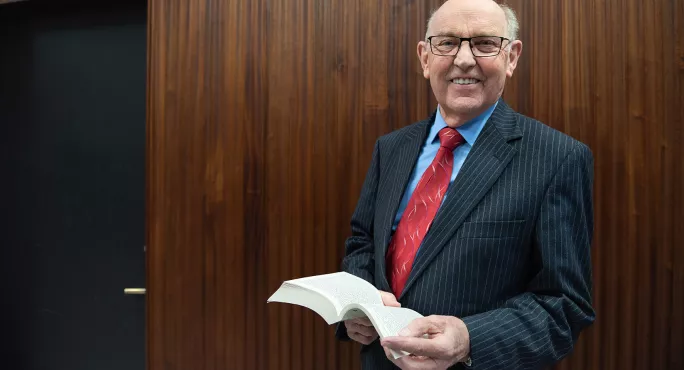Tributes have been pouring in following the death of the “truly inspirational” founder of the largest schools’ network in England and Wales.
Former headteacher Sir John Rowling, who founded the PiXL (Partners in Excellence) Club in 2005, has died after a short illness, the organisation has confirmed.
Sir John Rowling: Is this the most influential man in UK schools?
PiXL chairman: Ofsted accused of moving towards ‘telling schools what to do’
Analysis: Do new GCSEs give all pupils a ‘fair deal’?
Sharing the news on social media, the schools’ improvement network said: “We are sad to announce that Sir John Rowling, founder of PiXL, died yesterday morning after a short illness.
“His vision of a ‘better future and brighter hope’ for young people will remain as we partner together to continue his work. We are grateful for all your support.”
People throughout the sector have taken the time to remember the PiXL club chairman, with many hailing his “incredible legacy”.
A former colleague, Louise Garner, tweeted: “My first headteacher whilst working at Nunthorpe in 2000. The one by whom all others are measured and fall short.
“A great man, driven by his moral purpose and care for children’s futures. Deepest condolences to his family at this time.”
Author Clare Erasmus added: “I only met this wonderful man once when he came down to personally meet @chrisedwardsuk and myself to talk about the mental wellbeing agenda we had set up.
“I was struck by his humility. He was all about education and not about ego. He leaves behind an incredible legacy.”
Teacher Ben Taylor wrote: “Inspiring man! Lucky to have him come into our school and deliver a rousing speech. Full of passion and hope for better education for all. Rest in peace Sir John.”
Born in Doncaster in 1941, Sir John went to the local grammar school, and later became the first in his family to go to university.
In an interview with Tes in 2018, he said he came from a “very normal, not very wealthy home with caring parents”.
While he was studying for a master’s degree, one of his professors told him about a maths post that had become available at the Royal Grammar School Newcastle.
Sir John said he visited the school and was “bowled over” by what he saw. He took the job straight away and stayed at the school for 11 years.
His next job took him to Hirst High School in Ashington - a poor mining community “deep in Northumberland”.
It was at Sir John’s third and final school, Nunthorpe School in Middlesbrough, where he attained headship. Under his leadership, it became high achieving, and he began to attract notice.
The Department for Education visited the school, and Sir John was offered an opportunity to work with Sir Tim Brighouse on the London Challenge - the school improvement programme launched in 2003 to turn around poor standards in the capital.
Around the same time, his contribution to education was recognised with a knighthood.
In the London Challenge, Sir John was originally given 22 schools to work with. Nineteen of those were underperforming, and he managed to raise standards in all of them.
Initially, each school was given £9,000 to spend on improvement activities. However, in the third year, the DfE decided to withdraw the funding and wanted to redeploy Sir John onto another project within the London Challenge.
But the schools voted unanimously that they wanted to continue working together, paying for the support themselves if necessary.
It was at this point that Sir John decided to establish the PiXL Club, now a partnership of more than 3,000 schools, sixth forms and providers of alternative education.
The network continues to share resources, exchange ideas and provide advice.




